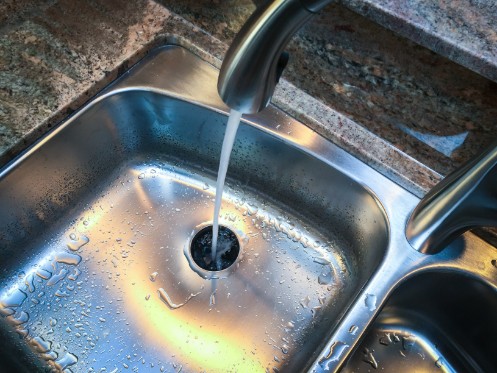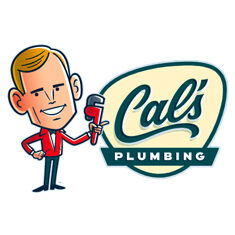It takes an experienced plumber to maintain a whole-house water filtration system. A whole-house water filter is a centralized solution that provides households with concerns about water purity. It improves the taste, smell, and overall quality of water throughout the house by removing pollutants, silt, and other impurities at the main water supply point. To address water quality issues, whole-house water filters use multiple filtration stages, including sediment, activated carbon filters, and other media types if necessary. Taking care of a whole-home water filter involves several maintenance tasks.
Professional Inspections
It is essential to inspect your whole home water filter regularly to maintain it properly. During the inspection, a professional can check for any leaks, visible damage, or signs of wear and tear on the system. According to most experts, it is advisable to invest in professional inspections at least once every two to three years.
Furthermore, a professional can also monitor your home’s water pressure during regular maintenance. A significant drop in pressure may indicate clogged filters that require early replacement. The expert will examine bypass valves, shut-off valves, and pressure relief valves to ensure they all function correctly.
Change the Filter
It’s important to follow the manufacturer’s guidelines regarding filter changes. Different filters have different lifespans, and some home filter systems use multiple filters. Replacing the filter as per the manufacturer’s instructions ensures that the water filtration system is working effectively. Generally, it’s recommended to change a pre-sediment filter every three to six months while changing the sub-micron post-filter every nine to twelve months. If you have a salt-free water softener as part of your system, it should be changed every six years.
Flush the System
Professionals recommend flushing a whole-home water filter system to get rid of accumulated sediment, debris, and air. This process helps maintain optimal water flow, prevents clogs, and ensures the system’s efficiency. Flushing also eliminates impurities that may affect the quality of filtered water and contributes to the system’s longevity by reducing wear and tear. It is crucial to regularly flush the whole-home water filter to sustain its performance and ensure it consistently delivers clean and safe water throughout the household.
In addition to flushing, it is advisable to backwash your whole-house filter every three or four days. The frequency of backwashing depends on the amount of water used, the contaminants present, and the type of filtering medium. Backwashing involves reversing the flow of water through the system to remove trapped particles from the filter by forcing water through the medium in the opposite direction. This process keeps the filter in good working order, prevents clogging, and prolongs the filtration system’s lifespan.
Sanitization
Professionals use recommended disinfectants, such as a diluted bleach solution, to sanitize a whole-home water filter system. This is done to eliminate bacteria, algae, and mold that tend to accumulate in the filter housings. Sanitization plays a crucial role in preventing bacterial growth, ensuring water quality, and maintaining the system’s efficiency. The process also addresses health concerns associated with microbial contamination while contributing to long-term reliability and safe, clean water delivery throughout the home.
Water Testing
Home water testing involves analyzing the quality of tap water for various parameters, such as contaminants, pH levels, and hardness. It’s essential to test your water regularly, at least once a year, especially if you have a whole-home water filtration system. This ensures that the system removes impurities and functions effectively. Water testing helps detect any issues, so you can rest easy knowing that the water from every faucet in your house is safe and pure.
Plumbing System Maintenance
Regular plumbing maintenance is crucial for ensuring a steady supply of clean water and extending the lifetime of the whole-house water filter. It also helps to prevent filter blockages and reduces the likelihood of plumbing issues. Hiring a professional plumber to check for leaks in appliances, pipes, and faucets, as well as monitoring the water temperature and pressure, is one of the best ways to maintain your home’s plumbing system. Additionally, avoiding the disposal of hazardous materials down drains can help to keep them free from blockages. By keeping up with regular upkeep, you can ensure that your whole-house water filtration system functions correctly and provides high-quality water to your home.
How To Choose the Best Water Filter for Your Home
When choosing the best whole-home water filter, it is important to consider various types based on their filtration methods. Some standard options include sediment filters, activated carbon filters, reverse osmosis systems, and UV purifiers. Sediment filters remove particles, while activated carbon targets impurities and chemicals. Using a special membrane, reverse osmosis systems eliminate contaminants, and UV purifiers sterilize microorganisms.
Factors like water quality, desired contaminants removal, and system maintenance should guide your choice. It is important to have a professional assess flow rates, installation complexity, and maintenance requirements to help you make the best choice. They can also consider whether a point-of-entry or point-of-use system suits your needs best.
When selecting a whole-house water filtration system, it’s important to consult water quality reports and get expert guidance to address your unique home and water challenges.
Does My Home Need a Whole-Home Water Softener?
Professionals consider several factors when determining whether a home requires a water softener. They analyze the hardness of the water by assessing the concentration of minerals like calcium and magnesium, as well as the impact of hard water on appliances, plumbing, and fixtures. Additionally, professionals consider the homeowner’s preferences, such as the desire for softer skin and hair, improved soap efficiency, and reduced scale buildup. By conducting a comprehensive assessment, tailored recommendations can be made to help homeowners decide whether to install a water softener system to address their specific water quality concerns.
Understanding the Differences Between Water Softeners and Water Filter Systems
Water softeners and water filter systems have different purposes. A water softener removes minerals like calcium and magnesium, which cause hardness in water. It prevents scale buildup and enhances soap efficiency. On the other hand, water filter systems remove impurities, contaminants, and particles from water. They improve taste, odor, and overall water quality. While water softeners mainly address mineral content, water filters deal with a broad spectrum of substances. Homeowners choose between these systems based on their specific water concerns. They aim for a comprehensive solution that meets their softening and filtration needs.
Do you have a water softener or whole-home water filter system in your house? If yes, do you remember when was the last time it was inspected by a professional? Regular professional maintenance is necessary for the longevity and effectiveness of water softeners and water filter systems. At Cal’s Plumbing, we offer water filter maintenance services and a range of other plumbing services, including backflow prevention, pipe lining, and water heater installations and repairs. We also provide assistance to homeowners for water softener installations and maintenance. Contact Cal’s Plumbing today to schedule your home’s water filter maintenance, repair, or installation.





